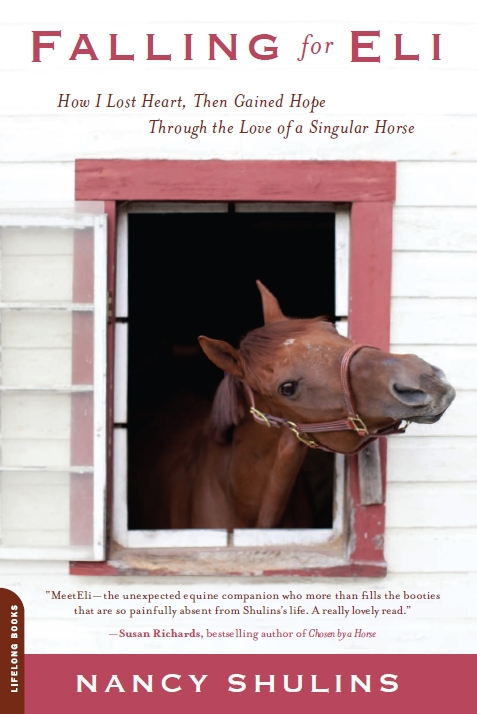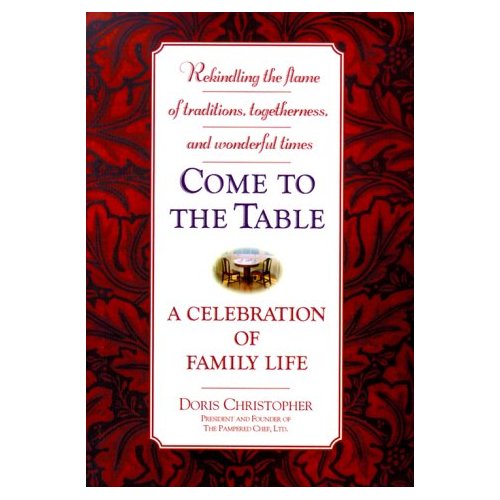The Life and Death of a Miracle Boy
FORT LAUDERDALE, Fla. – All his life, Vincent Graham has marched in God’s army, a fundamentalist foot soldier armed with the Word. He’s been a youth minister, a Bible scholar, a missionary. He knows a miracle when he sees one.
In 44 years he’s seen many, none greater than the birth of his oldest son, Samuel. Vincent called him a Miracle Boy.
One night last August while his family slept, the Miracle Boy climbed out of bed, dragged a step stool into the back yard and hanged himself from a fruit tree. He was 12.On his last day on Earth, Sammy Graham went to church. He had a pillow fight with his brothers, and ate ice cream for dessert. And if his suicide remains a mystery to his parents, at least it’s a private one now. The news vans that tore up their front lawn are gone, as are all the reporters who used their bathroom and promised to keep in touch. No one has.
At the immaculate little ranch house where Samuel lived and died, reminders of his short life are everywhere: His Little League trophies. The piano he was learning to play. The empty vase he used to fill with the wildflowers he picked for his mother.
Jacqueline Graham still can’t bring herself to show her son’s room to a stranger, but you don’t need to look past the photos in the living room to see who he was: He was the fat kid who didn’t have any friends. The easy target. The mark. It’s all there in his eyes: The sweetness. The shyness. The hurt.
At 5 feet 4, 174 pounds, he wasn’t the heaviest kid at his school. But he was sensitive, and when the others teased him about his weight, when they chased him down the street or smacked the back of his head when the teacher wasn’t looking, he sometimes cried. In the social hierarchy of fifth grade at Westwood Heights Elementary School, that put him squarely at the bottom.
Would things have been any different at Parkway Middle School? Sammy was to have started sixth grade there that Monday, the morning his father cut his body down from the tree.
His family is coping. “Not healed,” Jackie says, “but able to go on.” The same God that let Sammy go home to Jesus has allowed his two younger brothers to bounce back, and the parents are grateful. Such is the magnitude of their faith.
Sammy had it, too — “a deep, unusual love for Jesus at that tender age,” Jackie says. “He loved God. He loved church. He always sat in the second pew. He would come home and tell you, verbatim, what was said.”
In church, it’s the soul, not the body that matters; on the road to salvation, nobody gets chased. And if God sees the sparrow, he must have seen Sammy in his navy blue blazer, sitting up front.
He wasn’t just saved, after all. He was a Miracle Boy.
By all rights, he shouldn’t have been here at all. But years ago, a dying man gave Vincent his blessing. It was that blessing, Vincent believes, that led to the miracle of Sammy’s birth.
Vincent was a teen-ager in Jamaica when it happened. The man “began speaking in tongues, which was strange, because he wasn’t thought of as saved. Then he said, `I must convey upon you the fatherhood blessing.’ ” At the time, Vincent was disappointed. “I was hoping for rich and famous,” he says.
Years later, when doctors diagnosed his low sperm count, he remembered the blessing and experienced a revelation. Rather than seek medical treatment, he would let nature take its course.
Though she longed for a family, Jackie concurred. “I have faith in your faith,” she told Vincent. “If you believe that much, I believe in your belief.”
God tested their faith for seven long years. “On the seventh day of the seventh year of our marriage, Jackie was seven days pregnant. Seven! The number of God’s perfection.” He took that as a sign and gave his son the Greek name Simeon Ozee Ouk Ozee: “He liveth whom they say could not live.”
The name proved prophetic. At eight months, Sammy suffered a seizure. He stopped breathing, and the ambulance took forever to get there. “I took him on my shoulder,” Vincent says, “and he was stiff. The doctors said even if he lived he’d be brain-damaged.”
But instantly came a new revelation: “I called his name, in the name of Jesus! I said, `How can he die when his name is Simeon Ozee Ouk Ozee?’ And he lived.”
He was a big boy who walked early, spoke late and never did say very much. By the time he was 3, he could piece together intricate puzzles. He was cuddly and round; his parents couldn’t keep their hands off him. They considered him their baby, even after two additional miracles, David and Joshua, arrived.
Vincent reveled in fatherhood. He had a gift for it, too, a rare ability to play every part well — teacher, disciplinarian, cuddler and clown; to be a child one minute, a grown man the next. He credits his own father, as well as his years as a youth minister, with teaching him how to empathize with children. He calls it “feeling their hearts.”
He helped his boys with their homework and joined in their pillow fights. But he could be strict with them too, maintaining a level of discipline he’d found lacking in America, where children call grown-ups by their first names and teachers aren’t allowed to use straps.
There were other differences. In Jamaica, “I’d never experienced racism. I didn’t know I was black until I came here.” To prepare his sons, he showed them the prison where Jackie works nights as a nurse, saying, “Prisons are built in the black neighborhood. They are built for you. Over my dead body will you wind up there. I am the law in this house. I will set you right.”
Family court convened in the living room. “The last argument we had, Sammy won. `Yes, Daddy, I’m guilty,’ he said. `But have mercy.’ ” At that point, the judge turned to mush.
In parenthood as in life, the Grahams’ Bible was their guidebook. They don’t consider it a book at all, really, but rather the directly inspired word of God. Its timeless principles are the essence of what they have tried to impart to their children: To do right in the eyes of the Lord, to walk the paths of righteousness that lead to eternal reward.
Sammy shared their devotion. At 8, he heard the story of the baptism of Jesus and insisted on being baptized, too. Each Sunday, he’d take his place in the second pew, absorb every word of his father’s sermon, and then come forward for his blessing. Later, they’d have lengthy discussions. “He was like a little theologian,” says Jackie, “always questioning things.”
“How many Gods are there?” (A typical Sammy question.)
“One.”
“No, Daddy. There are six: The Lord, God, Jesus, the Father, the Son and the Holy Ghost. Six.”
The more Sammy learned about Jesus, the harder he tried to be like him. He always told the truth, even when it got him in trouble. He practiced turning the other cheek, looking out for the underdog. Being brave. When a dog attacked his brothers, Sammy saved them by attacking the dog. But lately, when other kids teased him, he’d had a tough time behaving like Jesus.
As the Grahams tell their story, 10-year-old David and 8-year-old Josh take turns darting into the living room to eavesdrop and wheedle. Can they watch TV now? No, read a book. Can they go outside and play? No, it’s pouring. Ask your grandmother a question. Learn something from long ago.
They are bright, active boys, as fast-moving as minnows. Sammy was different. He was quiet and slow, an emotional late bloomer who was physically ahead of his peers. “A baby in a grown man’s body,” says Vincent. And a paradox in other ways, too.
He was logical and precise, gifted not only at puzzles but also at music and math. He could dissect complex arguments with lawyerly skill. Yet he liked the same toys as his cousin, an infant. And he was awkward and clumsy; he couldn’t even clap. Josh rode a bike before he could.
In the water, his awkwardness vanished. Not in the daytime — he was too ashamed to let anyone see him in his bathing suit. He insisted on swimming in long pants and a shirt. But at night, it was magic, like shedding his body. In the water at night, he was free.
He’d grown increasingly self-conscious. “Fifth grade was socially tough. He had been very sensitive, very soft. His tears were close, and he internalized a lot more,” Vincent says.
“Puberty came very early. He started to develop little breasts. I told him, `You are going to grow out of it, Sammy. Look at those shoulders! You are so handsome! Girls will be fighting over you someday.’ ”
But Sammy didn’t care about someday. What mattered to Sammy was now.
Vincent understood. He tried to help Sammy devise a new strategy, since his retaliation attempts always backfired. He suggested counting to 10 and walking away. He appealed to the logical Sammy as opposed to the sensitive one, quoting the Bible to help make his point: “Anger lies in the bosom of a fool.” And, “My son, if sinners entice you, consent thou not.”
The Grahams also met with his teacher. They took Sammy to school and stayed with him until it started. They encouraged his budding interest in fitness. And they showered him with affection and love.
Though their hearts ached for Sammy, they knew it would pass. In the meantime, his home would be his sanctuary, and their loving guidance would see him through.
Bertha Hunter, the principal at Westwood Heights, thought so, too. She had 850 children to worry about, and she’d been there for less than a year, but she already knew and liked Sammy. His parents were doing everything right. At Westwood, he’d been placed in smaller classes and given a little extra support. Come September, at Parkway, he’d be one of 1,600. It was going to be a big change.
The Grahams spent the better part of the summer in Jamaica, where Sammy surprised everyone by launching an all-out campaign to lose weight. He lifted weights and did push-ups. He dieted and he jogged. He was developing discipline. His parents were proud.
By the time they came home in August, Sammy’s hard work had begun to pay off. Vincent was sure he could see a difference. But it wasn’t enough, not to Sammy. He had counted on coming back thin.
He got his first look at Parkway the week before school started. It was big. At the orientation he attended with his parents, “they emphasized that middle school is really tough,” Vincent says. “Nobody babysat you anymore.”
That Saturday, Vincent took the boys skating. On Sunday, they all went to church. Sammy wore his navy blue jacket with white pants and a pink shirt. “He looked so sweet,” Vincent says. If only he’d taken a picture.
The sermon was about God’s protection. At the end, Vincent asked the young people to come forward for his blessing. Like always, only this time Sammy stayed in his seat.
They had their usual Sunday dinner: Rice and peas with carrot juice. There was ice cream for dessert, a small helping for Sammy, who was still trying his best to lose weight.
The boys watched TV, then put on their pajamas and climbed into their parents’ bed. A pillow fight broke out. Naturally, Vincent jumped right in. After awhile, though, he turned himself back into a grown-up and insisted they all go to sleep. They had school in the morning, after all.
He got in bed with them and they cuddled. Jackie kissed them and left for work, having reminded Sammy she’d be home early to take him. It was the first day for Josh and David, too, but Sammy needed her more. He was the one changing schools.
When Vincent opened his eyes the next morning, it was 6:33. Sammy wasn’t in bed, but Josh and David were still sleeping, and their school started earlier.
He woke them and hurried them along. It bothered him that he hadn’t seen Sammy, but first things first. He needed to get the little ones ready. Otherwise, they’d miss their bus.
Where was he, anyway? Vincent checked the bathroom. He knelt down and peered under the bed. Sammy liked hide-and-seek, but that was a night game. He jogged, but never this early. Vincent was more puzzled than alarmed.
Back to the bathroom. He knew Sammy wasn’t there, but he was running out of places to look. Something caught his eye. He glanced out the window. What was that, under the tree? Then he saw.
A life has ended. It was Jackie’s first thought as she turned onto her street. She counted three ambulances, six police cars. A neighbor stopped her. It’s Sammy, she said.
Those first surreal days were a blur of visitors and arrangements. Somehow Jackie got through them, but how on earth would she get through the days after that?
A counselor suggested she set aside 20 minutes a day to think about Sammy and cry. Oddly, it helped. So did the fund set up in his honor, at People’s Bank of Commerce in Lauderdale Lakes. Friends, even strangers, wanted to do something, but what? Jackie knew: A center for shy, overweight children, where they could swim without shame.
For her family’s sake, she needed to pull herself back together. And little by little, she did. Not long ago, she realized something amazing: She’d gone a whole day without tears.
Of course, she’d had God’s help. She couldn’t have managed without him; in that way, her loss only deepened her faith. “His strength is made perfect in our weakness. I know that now,” Jackie says.
It helps to remember that Sammy’s gone home. He’s with Jesus now. That was what he most wanted, and God allowed it. They must accept it and go on; what other choice do they have?
And yet, there remain many unanswered questions. “It’s such a mystery,” Vincent says.
He can only imagine how it must have happened, how God must have watched Sammy steal into the yard with a flashlight, a rope and a step stool, having pieced together his final puzzle: The body he hated. The school he feared. The perfect place that awaited his soul.
He could go there. He would go there. It would be easy, like swimming. Just position the stool and climb up, toward heaven. Then step into God’s waiting arms.



